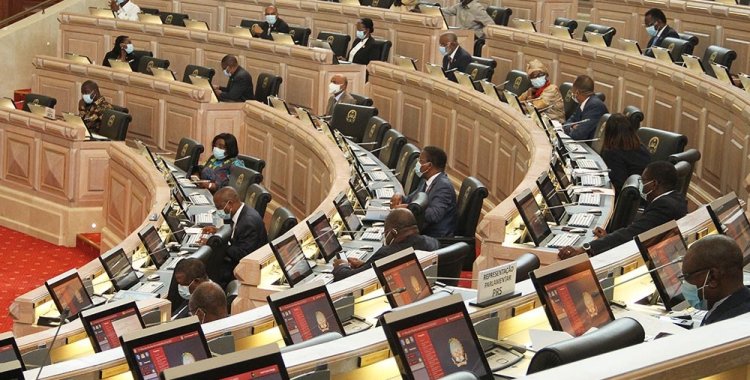The proposal to amend the Official Electoral Registration Law, by the executive, and the project to amend the law, an initiative of the parliamentary group of the National Union for the Total Independence of Angola (UNITA), the largest opposition party, are under discussion in parliament.
The government justifies the initiative on the grounds of "the recently made constitutional amendment, which foresees overseas voting, and the need to update the financial penalties" foreseen in its proposed amendment.
UNITA, among several reasons, argues in its project that the current stage of consolidation of the democratic rule of law "requires the optimization of the use of information technology in pursuit of the principles of uniqueness, transparency, permanence and impartiality that govern the registration of senior citizens and the maintenance of the respective databases".
The proposals are being discussed article by article by the specialty commissions of the National Assembly aiming at converging points for the elaboration of a single legal diploma, aiming at the general elections foreseen for 2022.
In the discussion of the general principles, expressed mainly in article 2 of UNITA's project, the theme related to the biometricity of the registration of adults merited heated debates, and later the article was approved by consensus and with amendments.
The deputy for the Popular Movement for the Liberation of Angola (MPLA, in power), António Paulo, defended the maintenance of the wording of the law in force, noting that the "principle of the permanence of the register is in Article 4 of the current law.
"The principle of impartiality and transparency that UNITA forgot are in article 7, and this transparency absorbs the principle of integrity," he said.
The president of UNITA's parliamentary group, Liberty Chiyaka, asked for serenity and elevation, in the face of subtle provocations to his party's project, saying he wanted to "contribute to the transparency, security, trust and credibility of the electoral process.
"On the principle of biometrics the only concern we had is to enshrine it to give legal certainty to our acts," he argued.
The transmission and publication of electoral data, expressed in article 15 of UNITA's proposal, which defends that "annually from the first fortnight of September the executive makes public and in a massive, transparent and effective way, for 60 days and per electoral district, the updated data of the larger citizens" also deserved discussion by the deputies.
"We want the biometric data of the citizens to be assured in the communication that is permanent between their databases and this is what is not properly addressed in the article 17 of the current law," said the UNITA deputy, Mihaela Webba.
For the MPLA deputy, João Pinto, the numerology in article 15, of UNITA's project, "is embarrassing and is contradictory".
"This proposal, as good as it may be to guarantee transparency, is not possible, even because it generates contradictions", he added.
The Secretary of State for Local Authorities, Márcio Daniel, considered that the "current wording of the law, as it is, safeguards what are our interests with regard to communication and transmission of data.
"This is the reason why we are not presenting any response, because we defend the maintenance of the wording," he stressed.
The discussion of both proposals, which aim to amend the current Official Voter Registration Act, approved in 2015, continues next week.







